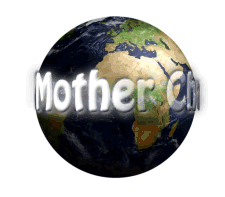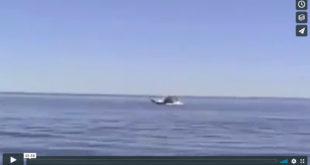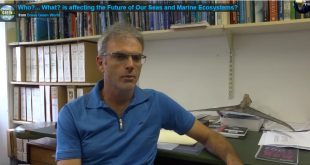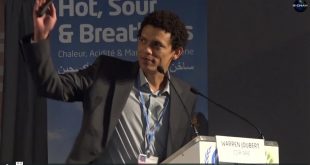COP 20 Lima US Center Panel Presenter on: Ocean acidification & upwelling impacts on the El Locos fishing region in Chile & other coastal Latin American countries.
Dr Laura Ramajo has studied ocean acidification from the warm Meditteranean Sea to the cold Pacific ocean. For the last 7 years researchers have been investigating ocean acidification around the Province of Choapa, a coastline of over 5000 kilometers and one of the most sensitive and important coastal areas in the world. Research started with Concholepas Fisheries, one of the most important places for social, economic and ecological sustainability of the concholepas (locos) population and industry, which if not effectively and ecologically managed, poses real threats to the livelihoods & food security of fishing communities in this region.
The shellfish industry in the region has also experienced severe declines, with high immortality levels and decrease in the size of individuals for several species being recorded recently, and the capture in scallop numbers have been experiencing decreases since 2009. With natural low pH increasing and affecting the animals and juveniles of the species, which is impacting on the survival and reproduction cycles, we are putting a proposal in place to work together with the government, industry and research institutions to address the ocean acidification problem, in order to form a ‘mitigation standard’ so as to find a solution to both laws of human and economic capita.
“Ocean Acidification is already impacting productive, socio-economically important marine systems along the coasts of both America’s”
Below, some history on the governance and resource management of the industry in the region:
Maritime Studies journal : Worldwide there is an increasing realisation that there is an inextricable link between the natural and human systems, and there is a need to integrate these into the governance of small-scale fisheries. The critical importance of adopting such an approach is argued in this paper by exploring the challenge of resource over-exploitation in the abalone fishery in South Africa and the loco fishery in Chile , both of which faced unsuccessful fishery closures and the implementation of Territorial Use Rights in Fisheries (TURFs)- Chile 1995, due to a lack of understanding of the socio-economic and political factors that are influencing the fisheries system. We argue that unless a more integrated approach is adopted to understand the social-ecological system as a whole, few long-term benefits will be secured for both the resources and the livelihoods of fishers.
Wikipedia : On the Chilean coast, C. concholepas is one of the most important edible mollusc species and is a major product of the aquacultural industry.[11] In 1975, about 5,000 tons were extracted annually. In 1980, the extraction peaked, with a catch of 25,000 tons.[12] Since 1989, extraction is illegal in Chile, but from 1992 onwards, some exceptions have been made for accredited commercial divers. The minimum size allowed for extraction is 10 cm. Currently, the only legal way for artisan fishermen or other people to catch locos is to have a Marine Area of Benthonic Resources Extraction permit. Even in these areas, though, extraction is prohibited from December to July from Valparaíso Region northward and from January or February to July south of it. Populations have shrunk and a recent study shows extraction is making an artificial selection to eliminate faster-growing individuals.[7][13] The same study also showed the populations in Chile are relatively homogeneous with low genetic variability. Due to over-extraction, scientists have studied the possibility of commercial cultivation since 1986.
The above was extracted from Maritime Studies journal and Wikipedia, links for more information can found here:
https://maritimestudiesjournal.springeropen.com/articles/10.1186/2212-9790-12-3 and https://en.wikipedia.org/wiki/Concholepas_concholepas
Additional Info, see following links:
 Mother Channel Environmental, climate change news and media.
Mother Channel Environmental, climate change news and media.



